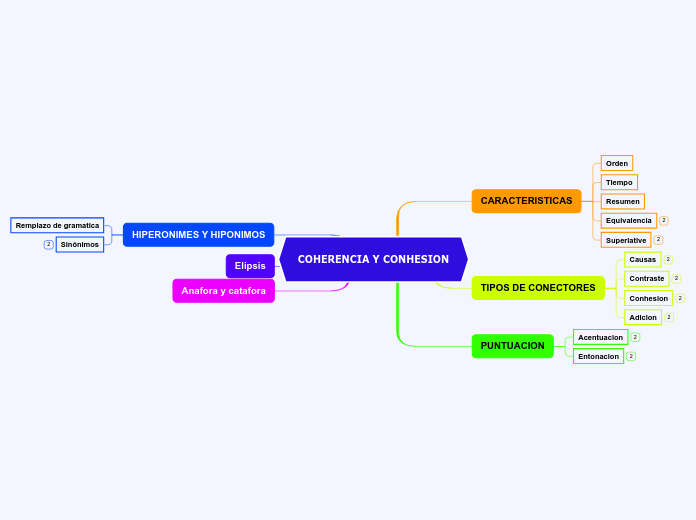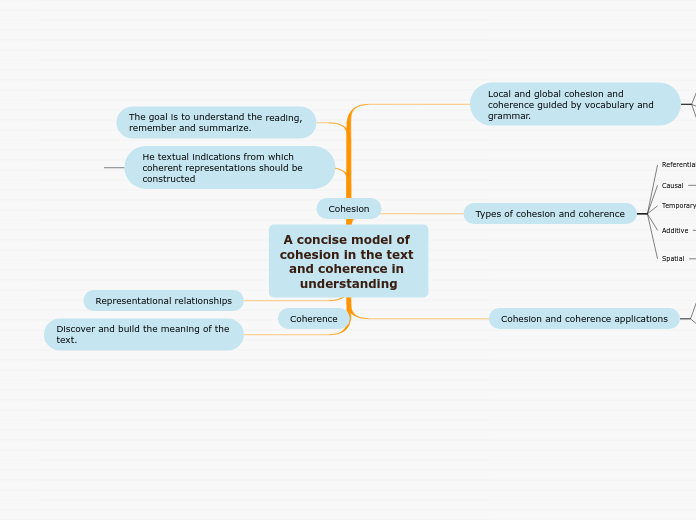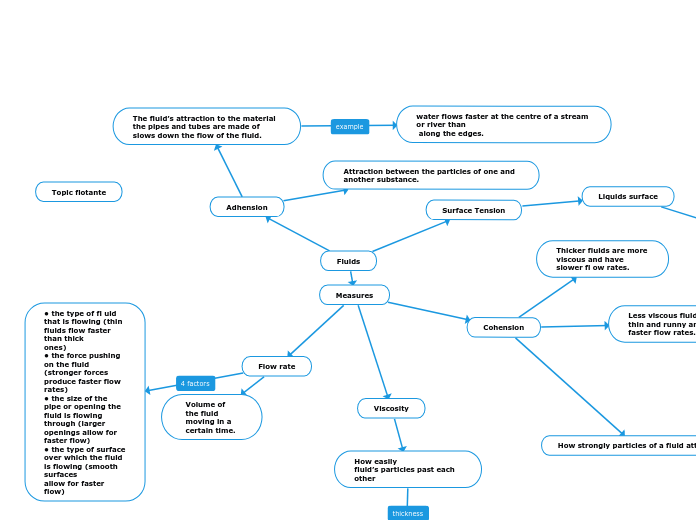COHERENCIA Y CONHESION
The part of speech is a category to which a word is assigned according to its syntactic functions. In English the main parts of speech are noun, pronoun, adjective, determiner, verb, adverb, preposition, conjunction, and interjection.
Anafora y catafora
Elipsis
A conjunction is a word like 'if' 'but' or 'and' which is used to connect sentences or clauses together.
HIPERONIMES Y HIPONIMOS
A preposition is one of the most exciting parts of grammar. A preposition is used to describe the location of something in relation to something else.
Sinónimos
When a preposition consists of more than one word, it is called double preposition.
into, within, upto etc.
Remplazo de gramatica
PUNTUACION
An article is a word used to modify a noun, which is a person, place, object, or idea. Technically, an article is an adjective, which is any word that modifies a noun.
Entonacion
Indefinite articles are the words 'a' and 'an.' Each of these articles is used to refer to a noun, but the noun being referred to is not a specific person, place, object, or idea. It can be any noun from a group of nouns.
A car in the parking lot.
Acentuacion
It refers directly to a specific noun or groups of nouns.
The breakfast on my plate.
TIPOS DE CONECTORES
A pronoun is a word that can be used in place of a noun, typically after the noun itself has already been stated.
Adicion
Relative pronouns are used to add more information to a sentence. Which, that, who (including whom and whose), and where are all relative pronouns.
Which, Where
Conhesion
Interrogative pronouns are used in questions. Although they are classified as pronouns, it is not easy to see how they replace nouns. Who, which, what, where, and how are all interrogative pronouns.
Which, Who
Contraste
Reciprocal pronouns are used for actions or feelings that are reciprocated. The reciprocal pronouns are each other and one another.
Each other, one another
Causas
A reflexive pronoun ends with ...self or ...selves and refers to another noun or pronoun in the sentence (usually the subject of the sentence). The reflexive pronouns are myself, yourself, herself, himself, itself, ourselves, yourselves, and themselves.
Itself, Himself
CARACTERISTICAS
An adjective is a word that's used to describe a specific noun and to provide more detail to the listener.
Superlative
Superlative adjectives demonstrate a higher level of comparison between entities.
She is the prettiest princess.
Equivalencia
Expresses a comparison between two entities or groups of entities in quality or degree.
Create sentences
He is taller than she is.
Resumen
Tiempo
Orden









